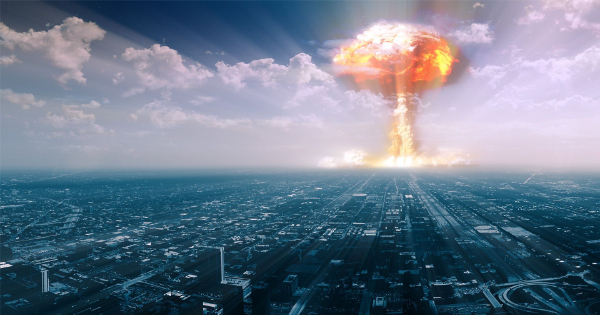Six reasons to oppose nuclear power
11/30/2015 / By Chris Draper
Less than five years after the worst nuclear catastrophe to plague Japan, the country’s government has once again decided to push for nuclear energy. The Japanese government is restarting reactors throughout the country and hopes nuclear power will account for 20 to 22 percent of its total electricity supply by 2030. Reverting back to nuclear energy is a grave and dangerous move on Japan’s part, a move that could potentially threaten the entire globe. Here are six reasons why:
1. Nuclear power plants increase the risk of cancer: Every nuclear reactor churns massive amounts of radioactive waste. Nuclear waste floods the the air and, in turn, blankets the masses. It can cause genetic mutations which lead to cancer. Just last month, a study was published that found thyroid cancer rates among children in the Fukushima Prefecture were 20 to 50 percent higher than children outside the prefecture. Claims that nuclear energy is “safe” have no more grounding than the land the decimated Fukushima power plant sits upon.
2. Nuclear reactors are major targets for terrorists: Because of the potential threat of mass destruction, nuclear power plants are major targets for terrorists. In the event that a malevolent group of people detonate a nuclear reactor, the results would be devastating. Adding more nuclear reactors to a site simply makes it more vulnerable to attacks by increasing the number of targets or making the target bigger.
3. Nuclear power stations are expensive: Nuclear power is by far the most expensive form of energy that has ever been carried out on an industrial scale. Power plants cost roughly $7.9 billion to build. Furthermore, nuclear reactors are so dangerous and so risky to build that no insurance company is even willing to insure such reactors against disasters or terrorist attacks. Consequently, the government has to subsidize the costs.

4. Nuclear waste poses a danger to the environment for hundreds of thousands of years: The rippling effect nuclear energy will have on the environment will extend to future generations. Instead of using benign methods to generate sustainable energy, we are dumping our energy problems onto future generations. The favorite solution is to dump nuclear waste into bedrock and seal it off forever. This move is as assinine as it is irresponsible. By investing so much money into building power plants, efforts to build sustainable energy supplies are deterred.
5. The cost of uranium will spike: The amount of uranium is limited and will decline with more nuclear power plants. As a result, the price of uranium will spike. If the world adopts nuclear power as a primary source of energy, it will cause uranium wars in the same way oil cause oil wars. By contrast, wars fought over locally generated solar, wind and wave power are unlikely to occur.
6. Nuclear power goes against the will of the people: Ever since the Fukushima disaster in 2011, the bulk of the Japanese public has been against nuclear energy. Nevertheless, the Japanese government continues to restart nuclear reactors, despite widescale public protest. The reason governments, in general, favor nuclear energy is because of the vast amounts of money pumped into the lobbying efforts by power companies. In short: Money trumps democracy.
Remember: Nuclear energy isn’t the solution to humanity’s problems — it’s the source. The risks attached to nuclear energy far outweigh the benefits. Claims that nuclear energy is safe are nothing but hot air fueled by greedy energy companies.
Sources:
Submit a correction >>
Tagged Under:
Fukushima Disaster, FukushimaDaiichidisaster, nuclear, nuclear risks, nuclearpower
This article may contain statements that reflect the opinion of the author





















